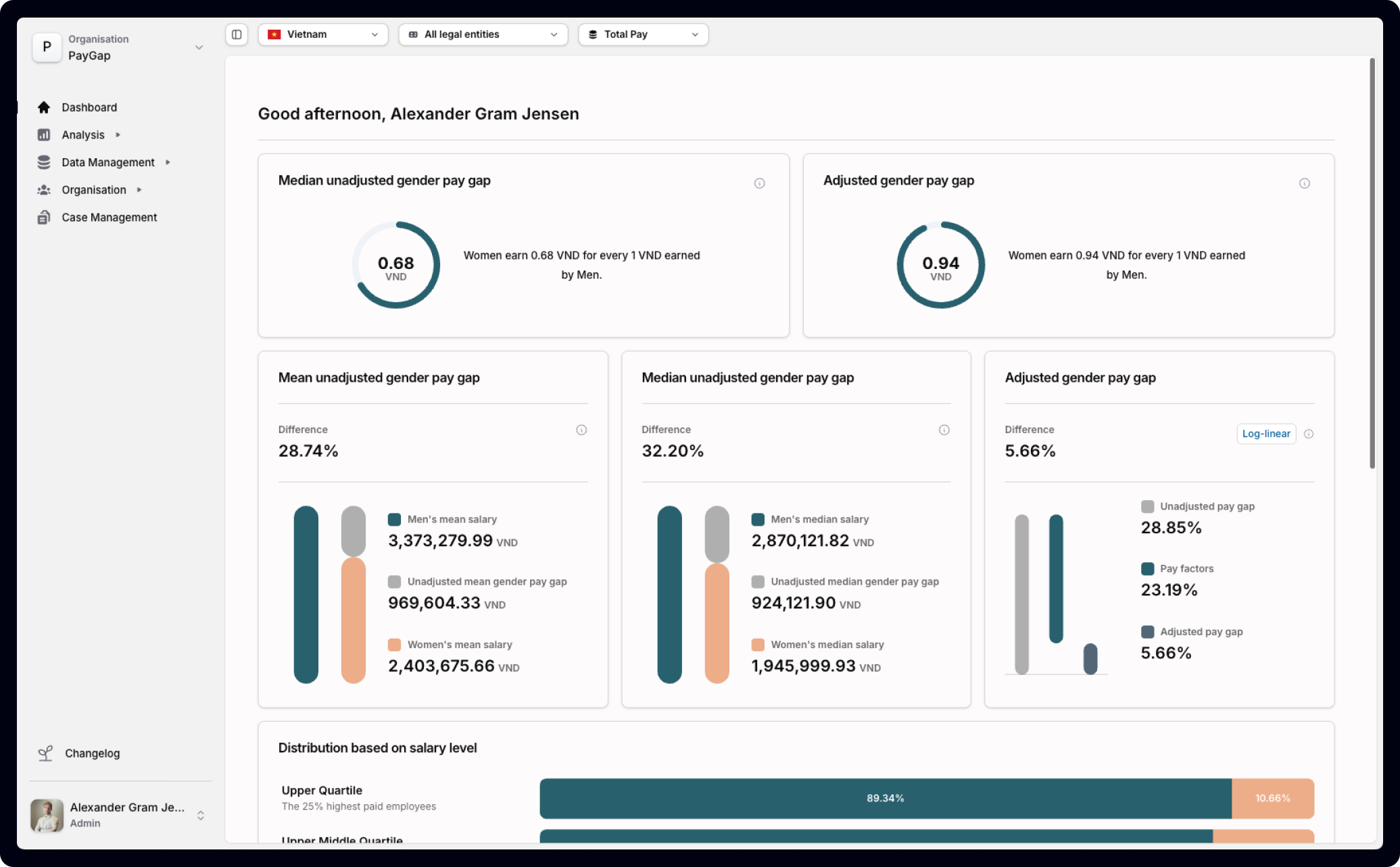PayGap helps you stay ahead of EU 2023/970 by delivering real-time pay audits, identifying risk areas and guiding you through corrective actions with expert-backed tools and insights.

Trusted by


























Pay Transparency is coming to all companies in Europe with more than 100 employees. Without a structured approach to preparing for compliance, it can open a range of risks attached to the largest cost of any company - the salary base.

PayGap identifies pay gaps in your organization that require attention, providing HR leaders with a powerful methodology to analyze and address disparities. The platform enables you to break down pay gaps by any category, offering tailored insights to support informed decision-making.

When pay gaps are identified in your organization, it is crucial to understand their root causes and address the factors contributing to pay disparities. PayGap highlights employees who may pose potential liabilities and enables you to manage individual cases effectively, helping to reduce your organization's overall pay gap.

After resolving existing pay gaps, it’s vital to monitor and prevent new ones from arising. PayGap automatically tracks emerging pay gaps and equips you with tools to set appropriate salaries for new hires, ensuring ongoing equity.
Embarking on the journey toward pay transparency requires careful consideration of your approach. The PayGap platform offers a cost-effective solution while reducing the risks of managing pay equity analysis internally.
PayGap ensures your work is securely stored and easily accessible for colleagues to continue where you left off.
Our methodology is rooted in statistical accuracy, merged with a practical perspective to make it easier for you to communicate.
We monitor the many variants of the EU (2023/970) Directive, and adapt our platform to ensure you will comply with formal requirements.
PayGap has been purpose-built from the outset to support pay transparency legislation. Every aspect of our platform is designed to guide you toward compliance, with each feature and function thoughtfully crafted to address pay transparency requirements. Our goal is to provide you with a robust foundation for making informed decisions throughout your compliance journey.

PayGap leverages more than 100+ years of expertise in Rewards and HR to deliver an intuitive Pay Equity platform designed to streamline and automate key tasks associated with pay transparency. Our extensive experience ranges from running rewards teams in global companies to advising industry leaders on their rewards. Because of this, you can be confident that your needs are in expert hands. Our methods are not only grounded in accuracy and data integrity but are also tailored to ensure a user-friendly and practical implementation.
We have been on both sides of the table, and therefore we can provide you with the perfect balance between guidance and flexibility.
Our success is measured by the value we deliver, and we are committed to supporting you every step of the way on your journey toward pay transparency. You can trust that we will be able to provide a solution tailored to your needs.


The new legislation is comprehensive, and can be complicated to understand. To help you, we have created a guide provides you with the information you need to understand the legislation and the implications it has for employers.
